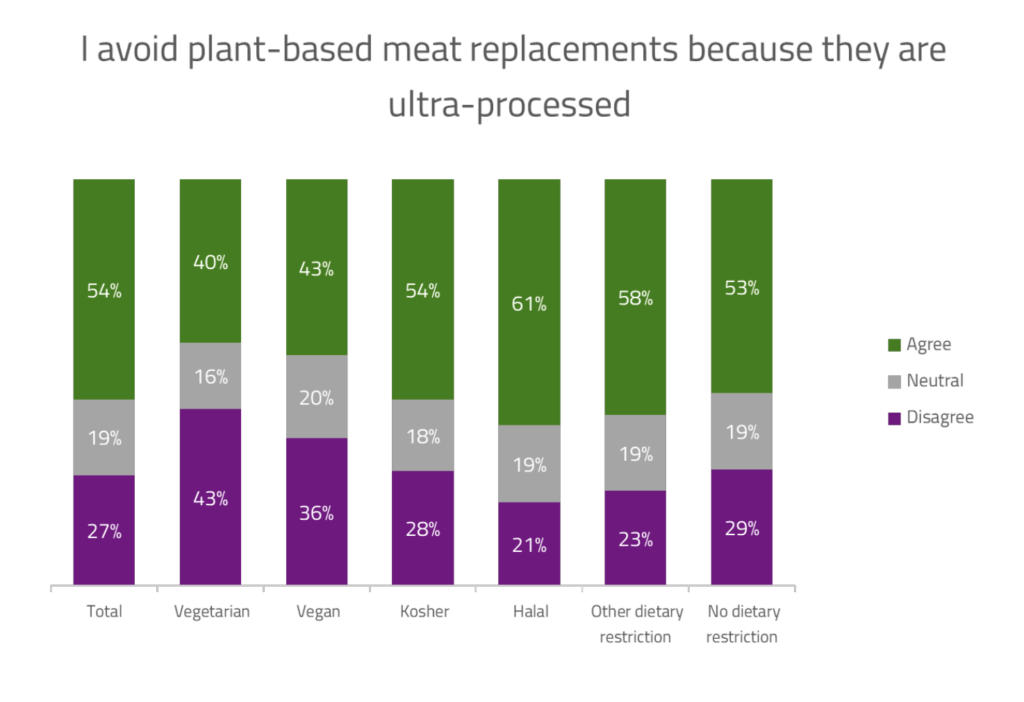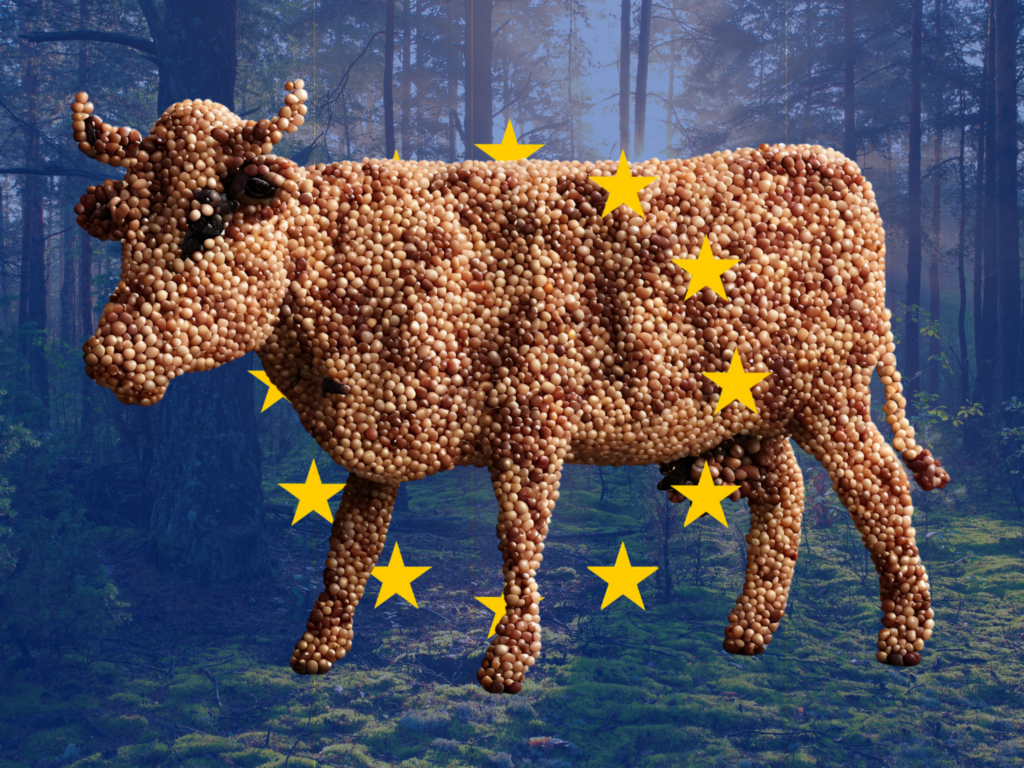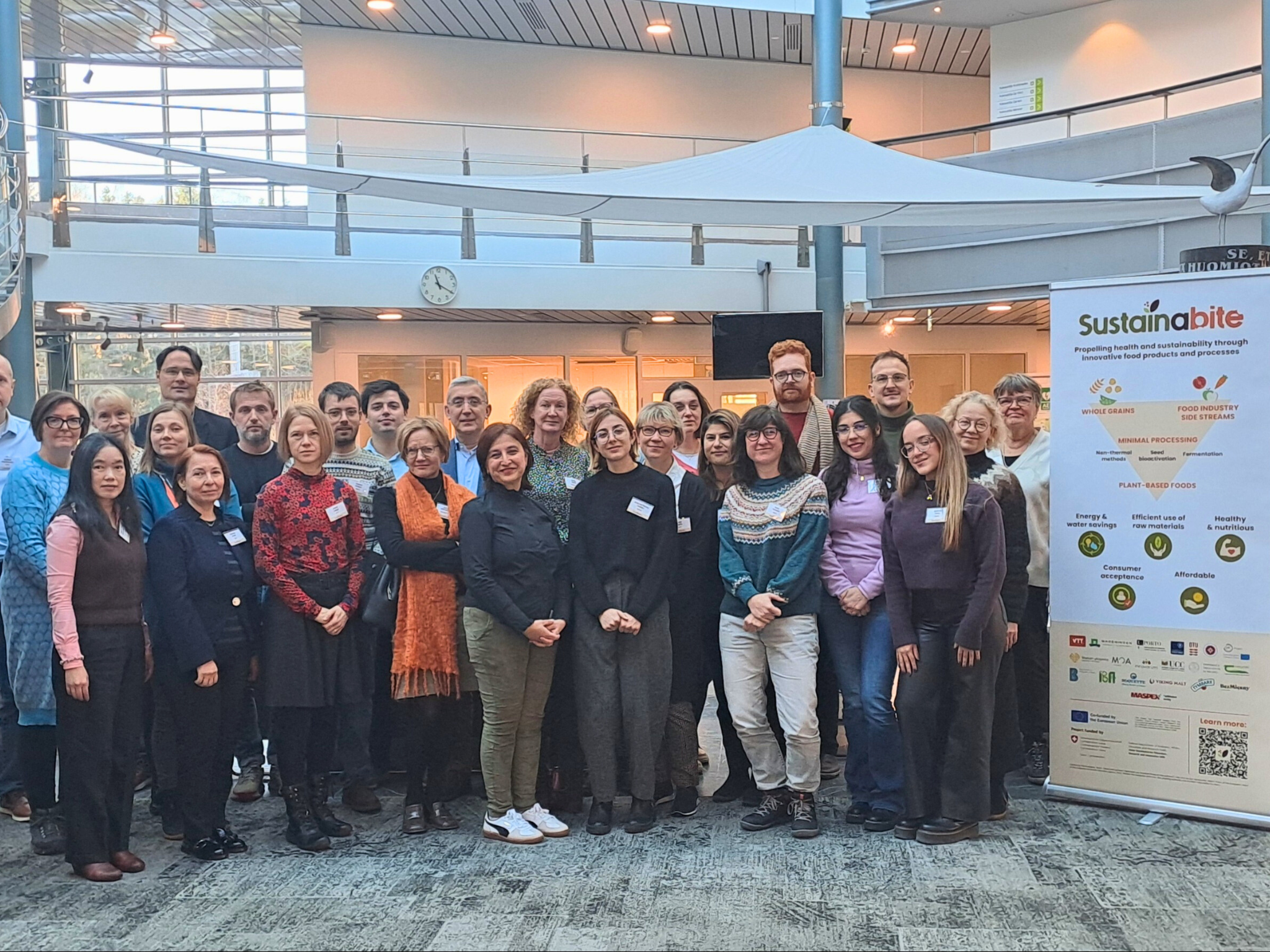EU-Funded Project to Create Upcycled, Whole-Food Plant-Based Meat to Take on UPFs
4 Mins Read
Sustain-a-bite, a project funded by the EU and Switzerland, aims to develop minimally processed plant-based products from whole grains and food waste.
As ultra-processed food (UPF) takes over people’s apprehension about the way they eat, and plant-based meat gets caught in the crossfire, Sustain-a-bite is a new initiative aiming to turn the industrial food system on its head.
“Since the Industrial Revolution, we’ve focused on stripping nutrients (e.g. dietary fibre, vitamins, and other health-promoting compounds) from grains to improve taste and texture,” says Nesli Sözer, coordinator of Sustain-a-bite.
“Now, Sustain-a-bite is flipping the script – bringing them back with natural, innovative processes for healthier, tastier plant-based foods, without relying on artificial ingredients or preservatives.”
Funded by the EU’s Horizon Europe programme and the Swiss government, the three-year project brings together 19 universities, food companies, and industry experts to develop minimally processed plant-based foods from whole grains and agricultural sidestreams.
It comes as 65% of Europeans remain concerned about the health implications of UPFs, and less than a third believe some of these products can be healthy – contrary to many nutritionists’ warning that the UPF classification has nothing to do with nutrition. Meanwhile, more than half of these consumers are avoiding plant-based meat because of their link to UPFs.

Sustain-a-bite to make minimally processed meat alternatives
The Sustain-a-bite initiative is targeting not just better nutrition and sustainability, but also a stronger economy and policy framework for a climate-friendly food system.
The project will look to create plant-based proteins using whole grains like barley, faba beans and chickpeas, as well as upcycled byproducts like apple, carrot and tomato pomaces. It will combine natural processes like fermentation and seed activation with non-thermal technologies to retain the natural attributes of the raw materials, and reduce waste, energy use and water consumption.
Its approach will focus on ingredients for plant-based meat, yoghurts, spreads, baked snacks and smoothies, which are rich in protein, fibre, vitamins and other essential nutrients and contain low levels of saturated fats, added sugars and “antinutritional factors”. Additionally, the use of predictive models would help enhance health and safety benefits by promoting satiety, digestibility, nutrient bioavailability, and a healthy gut microbiome.
“Our mission is to deliver technology solutions that enable healthier, more accessible and appealing plant-based food options, respecting European food traditions while promoting sustainability,” said Sözer, a research professor at the VTT Technical Research Centre of Finland, which is coordinating the Sustain-a-bite project.
The effort is said to align with the EU’s Green Deal and Farm to Fork strategy, though these have been derailed over the last few years through intensive lobbying efforts from livestock interest groups.
By implementing its goals, it aims to increase access to wholesome plant-based options, which have been found to reduce the risk of chronic conditions like obesity, type 2 diabetes, and heart disease. Boosting the availability of minimally processed plant proteins will also help lower greenhouse gas emissions, water use, nitrogen pollution, and land use.

Agriculture in sharp focus in the EU
Sustain-a-bite will assess the circularity, environmental, health, and economic impacts of its approach and evaluate scenarios where diets rich in minimally processed plant-based foods replace less nutritious animal proteins.
Success would mean catering to what Europeans want from their food: flavourful, accessible, affordable, and tailored to cultural heritage. Currently, only 27% of them think meat alternatives are better for the planet, while 57% think the opposite – despite evidence showing that meat and dairy account for 84% of the EU’s agriculture emissions.
The EU is keen to highlight another dimension to the project. It uses domestic raw materials, and the processes to manufacture these foods are designed to be easily accessible and adaptable for use by both small local businesses and large companies. The idea is to leverage short food value chains to boost the region’s economy, while attracting investment and employment in the bio-based industry.
The Sustain-a-bite scheme, which will run until the end of March 2028, comes live just as agricultural sustainability is brought into sharp focus in the EU. The newly elected Commission is set to publish an agrifood vision within the first 100 days of the term, taking into account advice from farmer groups, food lobbies, and climate organisations published in the Strategic Dialogue on the Future of EU Agriculture in September.
One of the key recommendations of the report was a transition to alternative proteins and the creation of an EU-wide plant-based action plan by 2026 – although agricultural commissioner Christophe Hansen has previously poured cold water on this advice.
That has prompted climate advocacy groups, doctors and medical experts, as well as some of Europe’s largest food companies to write open letters urging the EU to prioritise healthy and sustainable diets in the agrifood vision.
And just last week, the EU Commission announced a €132M investment to promote “sustainable and high-quality agrifood products” both internally and in markets like Japan, China, South Korea, Singapore and North America. This includes money set aside to stimulate fresh fruit and vegetable consumption in the context of balanced diets, and programmes increasing awareness of organic and sustainable farming, along with higher animal welfare standards.



